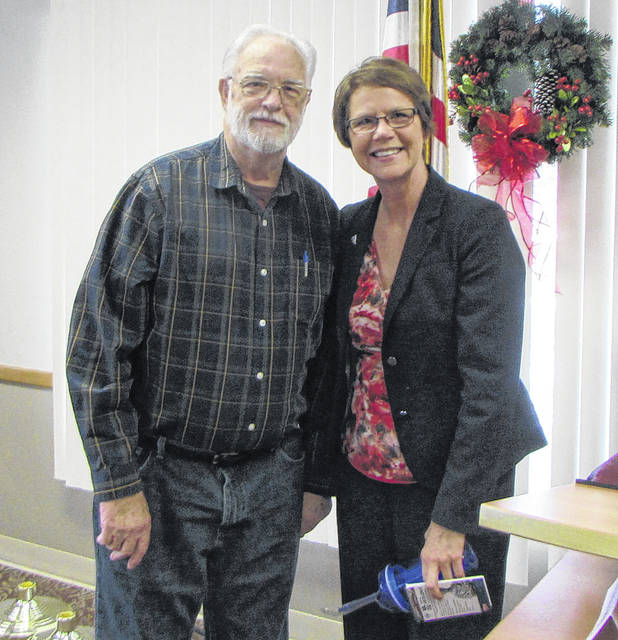
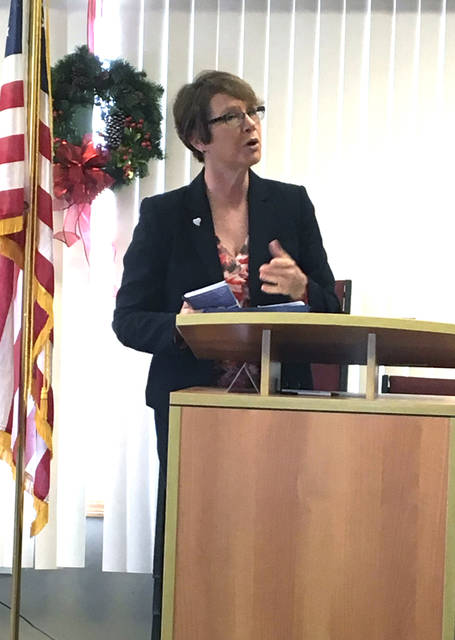

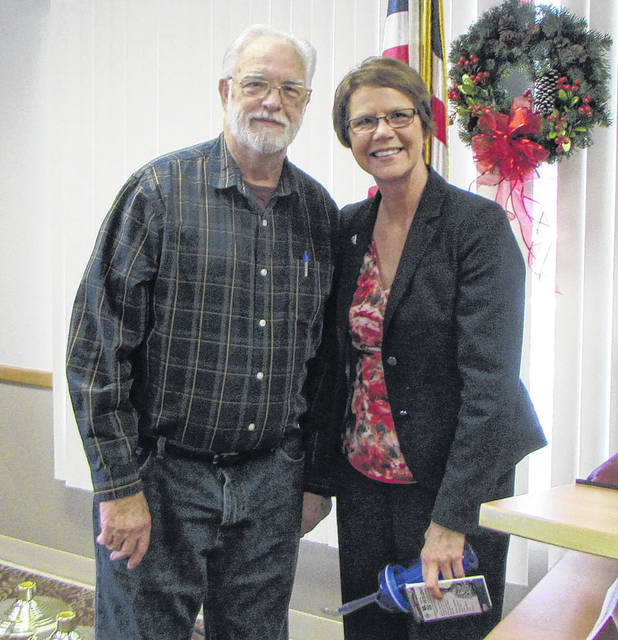
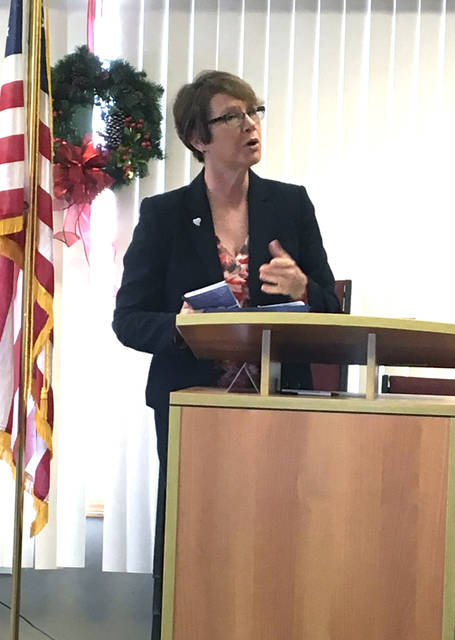
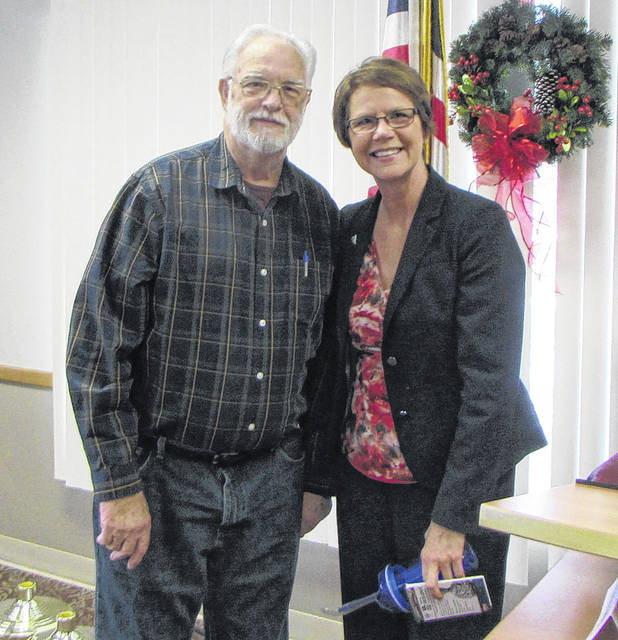
GREENVILLE — It is State Supreme Court Justice Sharon L. Kennedy’s fundamental belief that folks have an obligation to help veterans who are returning home, to return wholly home.
Justice Kennedy was the guest speaker at the the Greenville Kiwanis Club meeting Wednesday, on the topic: “Veterans Courts: Restoring those who Served to Wholeness.”
“We have the power to help veterans.” she said. “If they end up coming into the justice system, we have the ability to treat them, give and connect them with the services they have earned from wearing a uniform and serving our flag.”
The veteran’s court model is based on drug treatment and/or mental health treatment courts. Substance abuse or mental health treatment is offered as an alternative to incarceration. Typically, veteran mentors assist with the programs. In January 2008, Judge Russell created and began presiding over the nation’s first “Veterans’ Treatment Court.”
“He was noticing in his mental health docket, an increase in veterans that he was seeing, and he wondered why,” Kennedy said. “We were already several years into the wars in Iraq and Afghanistan, and already into the self medication mode of them coming home.”
According to Kennedy, as of December 31, 334 Veterans Courts existed across America and many more are growing everyday. Her goal is to get one Veterans Court in each of Ohio’s 88 counties, so each county can share getting services to the veterans. As of November, Ohio had 15, and according to Kennedy, seven new Veterans Courts will be added this year. So far, there have been positive outcomes from the courts, according to a study from the Ohio Department of Mental Health and Addiction Services (OhioMHAS).
According to Kennedy, OhioMHAS followed 90 veterans through the Mansfield Municipal Court, ages 21-73, and conducted a six-month interview and a year interview. Of the 86 veterans that successfully finished, nine recidivated. In addition, 21 percent had gained full time employment, 31 percent were able to secure stable housing and 16 percent were enrolled in schools and training programs. Of the 90 veterans they followed, all of them started with a clinical diagnosis of Post Traumatic Stress Disorder, (PTSD). By the time the year ended, only 25 percent of them were still clinically diagnosed with PTSD, Kennedy said.
“That says to me that the psychological services that they are able to provide by working through these courts, and getting the veterans into treatment, stabilizing their housing and getting their lives back on track, that says to me significantly, that you can change,” Kennedy said.
Darke County Common Pleas Court Judge Jonathan P. Hein said he thinks the idea of Veteran’s Court is great, and that the Darke County court has been doing it informally for years.
“It has given us access to programs that the public stands for and is paying for in Darke, Miami and Shelby counties in taxes to the The Tri-County Board of Recovery and Mental Health Services,” Judge Hein said. “Tri-County has programs, in Shelby, that we don’t have in Darke, but we can send people there. The counties around here work really well together.”
According to the Bureau of Justice Statistics, the number of veterans incarcerated in state and federal prison, and local jail was 181,500 in 2011-2012. Kennedy said that after speaking with judges that run treatment courts, the veterans’ issues landing them in jail, are a result of serving our country.
“Because the criminal action is just a symptom, it really is a result of the PTSD, which is the result of the service,” she said.
Seven percent of the population in Darke County are veterans.
“Seven percent of the men and women who walk the streets in Darke County served America’s flag, wore a uniform, and did our bidding,” Kennedy said. “Every year, on November 11, organizations honor veterans. I ask you to think Veterans Day be everyday, and to please give thanks to the men and women who have served. Let us not forget those who live among us, who are still walking wounded and have to fully come home.”






